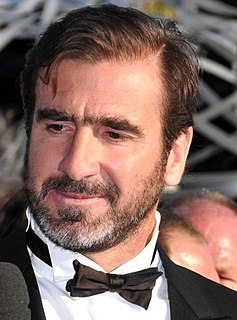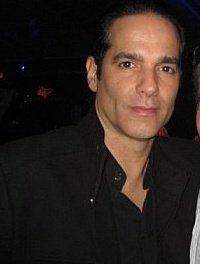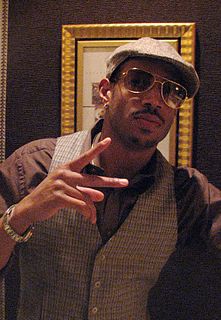A Quote by Philippe Falardeau
I didn't want the film to be didactic, and this is tough because if you look at the list of issues, you have immigration, the education system, you have the grieving, you have suicide. I think what saved me were two things. I tried to do everything with some level of restraint and let the spectator make up his own mind.
Related Quotes
If you look at the end of the movie [Monsegnor Lahzar], I give a lot of space to what the spectator can also imagine of what's going to be Bachir's life afterwards. So, there's the restraint part, and there's the fact that the story is happening in the school which allowed me to tackle all these subjects without making it too didactic, because in the school everything happens.
Immigration is the most difficult issue I've ever dealt with, and I've dealt with some tough issues: drones, gays in the military, WikiLeaks, Guantanamo. But immigration is hardest because there are so few people willing to talk and build consensus. Everybody's firmly made up their mind. It's a polarized issue.
With my two brothers, Jean-Marie and Joel, I wrote a two-page story and wanted to make some kind of movie. We met a French production company, called Why Not?, and the first name we put on the list was Ken Loach. It was a dream for all of us. So, we tried and we met Ken and Paul Laverty, his writer, and they read the two pages and were inspired by that to do something. Paul had the freedom to do his own story - and he wrote his own story, which is better than the one we'd written.
Small things such as this have saved me: how much I love my mother — even after all these years. How powerfully I carry her within me. My grief is tremendous but my love is bigger. So is yours. You are not grieving your son’s death because his death was ugly and unfair. You’re grieving it because you loved him truly. The beauty in that is greater than the bitterness of his death.
Ray Cappo never tried to convert me into a Krishna, although one of his cohorts probably did. I think it was just about being wrapped up in this thing. Hardcore, at one point, meant everything to me. Now you look back, and I still think it's cool, but to some extent I grew out of it. Other things became a bigger priority for me.
I think a lot of people go into filmmaking thinking, "How can I make a career?" And so when they make their first film, they make it thinking, "Well, this'll be the one that gets me to the place where I can make the second film the way I want to make it, and that'll get me to the place where I can make $100 million on the third film." And I thought, "Well, if I put sustainability at the bottom of my priority list, then what opportunities is that going to free me up to pursue?" And that's what I've always done.
I will begin with what in my opinion is your lack of restraint. You are like a spectator in a theatre who expresses his enthusiasm so unrestrainedly that he prevents himself and others from hearing. That lack of restraint is particularly noticeable in the descriptions of nature with which you interrupt dialogues; when one reads them, these descriptions, one wishes they were more compact, shorter, say two or three lines.
Stories about sensitive issues like sex, drugs or sexual assault, suicide and teen drinking, are often censored because people just don't want to talk about those things. It's not that these things don't happen, but when they're shared in a fictional setting, for some reason they make some people uncomfortable.
I think when it comes to the issues, I'd advise him to stick to the script. But, I mean, Donald Trump is going to have some very tough conversations and he's going to be talking about some very tough and complicated issues in all of the places that he visits.I think anytime a president does things that are humanizing, I think it's - it's good.
Trump's not showing up and trying to politely insert himself in political system and the way politicians do things. He's not trying to ingratiate himself. He doesn't care. He's elected to do specific things. His campaign, his agenda, his rallies, a very long list of specific things, and he reminded everybody, if you're thinking he's not gonna build a wall, if you're thinking that was just chatter, I'd change my mind if I were you.
When artists connect to a system because they want to make a living, it's their own choice. In fashion, designers don't have that choice. I know everybody mentions Azzedine Alaïa, but he's been going for a long time in the system - showing to people, selling to clients - and I think it's admirable how he's transformed it into his own system in a way, but it's still a system.
Look, I want to be able to make the stupidest movies ever, because they make people laugh and they make money. But that's not all I want to do. And I think I've proven to some people - the ones paying attention - that I can do more. Everybody else, well, they can wait and see and make up their mind.





































